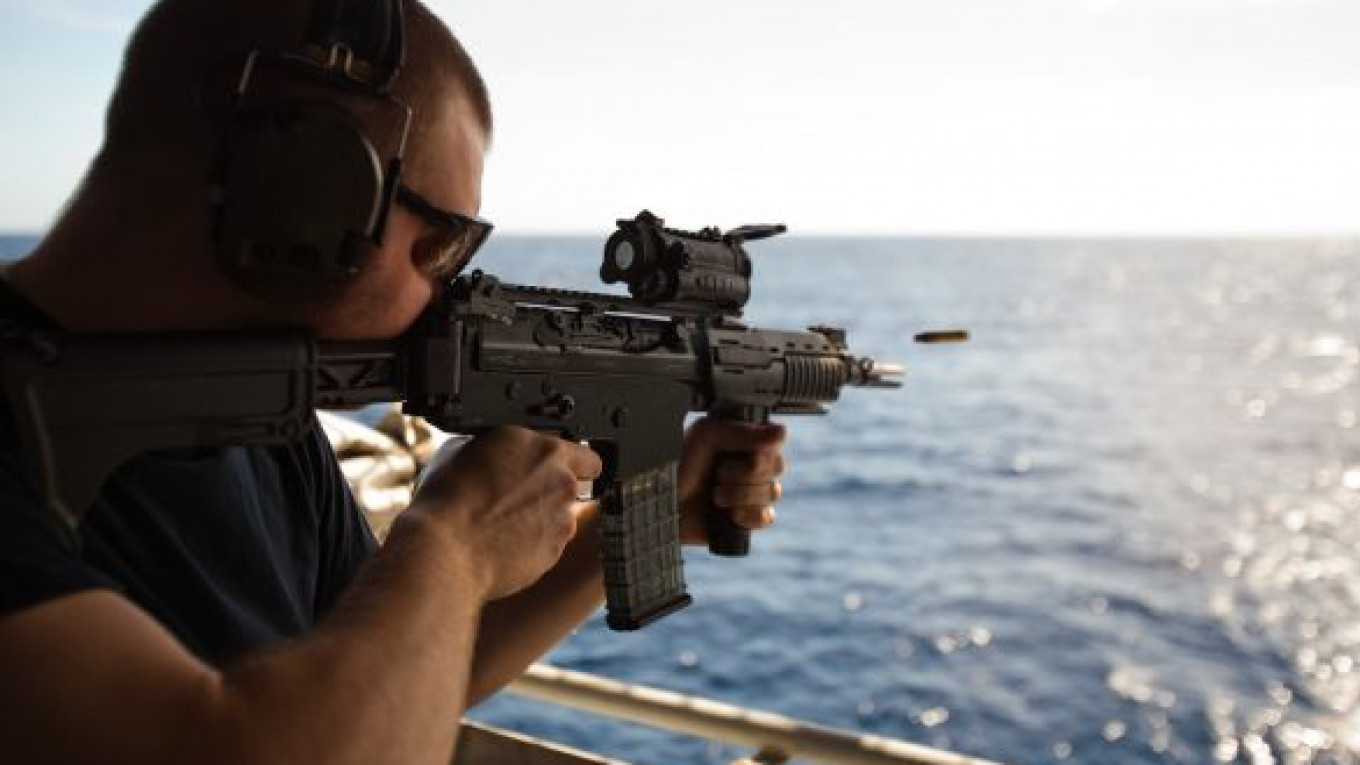NAIROBI, Kenya — Somalia's transitional government has called on Russia to explain why it had cut 10 Somali pirates adrift in the Gulf on Aden without navigation equipment or much hope of survival.
Some Somali pirates, meanwhile, vowed revenge on Russian sailors.
Russian forces stormed a hijacked oil tanker in a rescue operation that killed one pirate earlier this month.
The Defense Ministry said 10 others arrested were later set loose aboard one of the small vessels they used in the attack. It said they were stripped of their weapons and navigation equipment.
Russian media later quoted a military source as saying the pirates were now likely dead.
"We want an explanation from Russia on the death of our citizens," Abdirasak Aden, an official at Somalia's Information Ministry, said Friday.
"They are gangs, and there is no dispute on that, but they have to get a fair trial. Dumping them in international waters was not the only choice," he said.
The Defense Ministry said the pirates were set free because there were no grounds to prosecute them in Russia, and experts say bringing pirates to trial is notoriously difficult.
"Many countries either lack the right legal code to dub piracy a criminal offense or the procedural provisions to do so," said J. Peter Pham, senior fellow and Africa Project director at the National Committee on American Foreign Policy.
"Up until now, Kenya and the Seychelles have taken the majority of the caught pirates … but over the last year, they have simply reached their limit," he said.
According to one U.S. tally, Pham said, 706 pirates were encountered by naval vessels of the counterpiracy coalition between August 2008 and December 2009.
"Just 46 have been convicted so far, and 23 acquitted. All together, that means that nearly 60 percent of the pirates encountered were simply released," he said.
In a bid to plug this gap, a Russian-drafted resolution that suggested creating special pirate courts passed unanimously last month at the UN Security Council.
The resolution, a rare Russian initiative on the council, expressed concern over such cases, calling them a failure that "undermines anti-piracy efforts of the international community."
One legal expert said Russia's decision to cast the 10 Somali pirates adrift contravened its obligations to protect their lives and offer them the right to a fair trial.
"You cannot expect people to make it ashore without navigation equipment," said Deborah Akoth Osiro, a Nairobi-based legal expert.
"If they were actually set adrift with insufficient supply, at a range of 300 nautical miles from the shore, then Russia once again failed in its positive duty to prevent foreseeable loss of life," she said.
Some pirates pledged revenge, insisting that their comrades were executed by the Russians.
"We will deal with Russians unlike other hostages. We never think about harming a hostage, but we will reconsider that, and respond the same way their navies respond to us," Isse, a pirate commander in the coastal town of Hobyo, told Reuters.
Somali pirates have made tens of millions of dollars from seizing merchant vessels for ransom in the Gulf of Aden and the Indian Ocean. With foreign navies patrolling the busy shipping lanes, the pirates are striking further afield.
According to the International Maritime Bureau, Somali pirates accounted for more than half of the reported piracy incidents worldwide in 2009 and nearly all of the hijackings, with 47 successful captures.
A Message from The Moscow Times:
Dear readers,
We are facing unprecedented challenges. Russia's Prosecutor General's Office has designated The Moscow Times as an "undesirable" organization, criminalizing our work and putting our staff at risk of prosecution. This follows our earlier unjust labeling as a "foreign agent."
These actions are direct attempts to silence independent journalism in Russia. The authorities claim our work "discredits the decisions of the Russian leadership." We see things differently: we strive to provide accurate, unbiased reporting on Russia.
We, the journalists of The Moscow Times, refuse to be silenced. But to continue our work, we need your help.
Your support, no matter how small, makes a world of difference. If you can, please support us monthly starting from just $2. It's quick to set up, and every contribution makes a significant impact.
By supporting The Moscow Times, you're defending open, independent journalism in the face of repression. Thank you for standing with us.
Remind me later.


